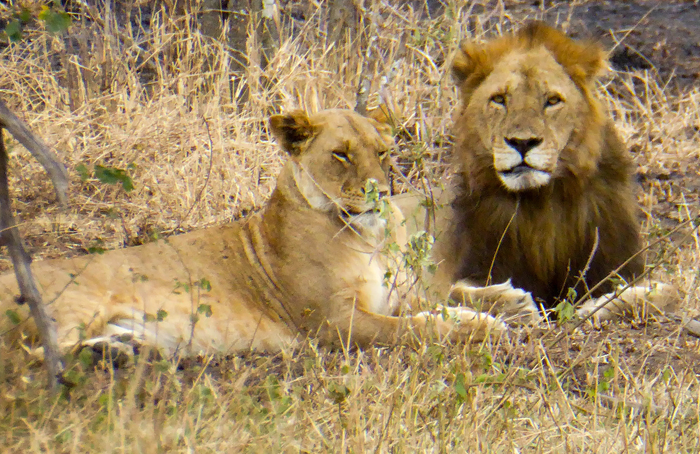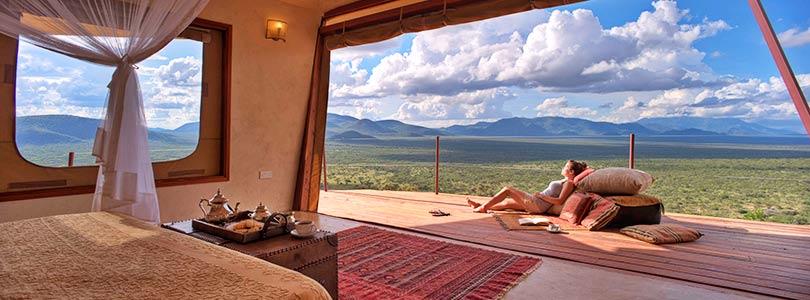Recommended Tips On Deciding On Kenya Tours And Safaris
Wiki Article
What Travel Arrangements Should I Be Aware Of Before A Vacation In Mombasa Kenya?
To make sure that your trip to Mombasa in Kenya is pleasant and stress-free It is essential to be aware of the many transport options offered. Here are a few key points to consider for your Mombasa Kenya holiday.
1. How to reach Mombasa
By Air: Moi International Airport (MBA) is the principal airport that serves Mombasa. International and domestic flights are managed by the airport. Mombasa is served by many major airlines.
By Train: Kenya Railways operates the Madaraka Express, which runs between Nairobi and Mombasa and provides a contemporary and comfortable train service.
Bus: Numerous bus companies provide services from and to Mombasa such as Modern Coast and Coast Bus.
2. Local Transport in Mombasa
Taxis and ride-hailing services are available in the abundance. Uber and Bolt are two ride-hailing companies that are operating in Mombasa. They offer convenient ways to get around.
Tuk-tuks - These three-wheeled cars are a very popular and affordable method of moving around the city. They are suitable for shorter distances.
Matatus are minibuses that have an shared driver. They follow a particular path. They are the most popular type of public transport. They are reasonably priced, but they can be they can be crowded and less comfortable.
Boda-bodas Taxis for motorcycles are available for quick and easy travel, especially for shorter distances and areas with heavy traffic.
3. Car Rentals
Self-Drive: Car rental services are available at the airport and in the city. Local and international car rental companies provide a wide selection of automobiles. Be aware of local driving regulations and traffic regulations.
Services with chauffeurs are available to those who don't want to drive.
4. Ferry Services
Likoni Ferry connects Mombasa the south-facing mainland of the city. It is required for pedestrians to get to the southern beach. Vehicles are charged a fee.
5. Excursions, day trips and Other Activities
Tour operators offer tours to many of the most popular destinations like Mombasa Marine National Park Fort Jesus and nearby beaches Diani and Nyali. These tours typically include transportation.
Public Transport: For independent travelers, using a combination of tuk-tuks and matatus and taxis can help reach numerous attractions.
6. Cycling and Walking
Certain areas provide bicycle rentals, especially those near beaches.
Walking: In certain areas of Mombasa (especially the Old Town area and the beaches), walking is possible.
7. Tips for Travelers
Beware of public transport that is open late at night and only make use of taxis that you know. Be sure to take care of your belongings.
Negotiation: For taxis and tuk-tuks, negotiate the fare before you begin your journey, as meters are not commonly utilized.
Traffic: Expect heavy traffic, especially around Likoni Ferry or central business district.
You can have a restful and enjoyable vacation in Mombasa by understanding the available transport alternatives. See the top mombasa watamu snorkeling for website examples including mombasa tour companies, kenya safari tours, kenya tours and safaris, safari a nairobi, tours and safaris in kenya, mombasa beach kenya, trip tour companies, safari a nairobi, kenya safari tours, kenya safaris and tours and more.

What Are The Culture Sensitivity Issues That I Should Be Aware Of During My Vacation In Mombasa Kenya?
It is crucial to respect local culture when traveling to Mombasa. This will allow you to have a better experience. Here are a few key points to consider:
1. Be respectful of local dress codes
Mombasa has a large Muslim community. It's respectful to dress modestly, especially when in public areas including religious places, as well as local neighborhoods. This includes covering the shoulders, chest and even the knees.
Wearing swimwear is fine at the beach, however it's recommended to cover up when leaving the beach area or going to nearby shops and restaurants.
2. Religious Sensitivity
Visiting Mosques. To visit a place of worship, you must first ask for permission. You should also dress modestly. Women must cover their heads, and everyone must remove their shoes prior to getting into.
Prayer Times: Be aware of the five times you need to pray for daily prayers. Be respectful, especially if you're near a Muslim mosque.
3. Photography Etiquette
Permission is always required before photographing, particularly in rural and traditional settings. Some people feel uncomfortable or may believe that the photographs are invasive.
Beware of restricted areas - Don't take pictures of sensitive areas like military installations and government buildings.
4. Social Interactions
Salutations: It's important to say hello politely. Swahili greetings are a good example "Jambo". Although handshakes can be common, Muslim women should wait for males to extend their hands before greeting verbally or waiting for them to greet them.
Personal Space: Pay attention to the importance of respecting personal space.
5. Cultural Norms and Taboos
Public Shows of Love: They are frowned on.
Left Hand Use: According to traditional usage, the left hand is considered unclean. Make use of your left hand when eating, wishing people a happy birthday or exchanging money and items.
Feet: It's thought to be disrespectful to point the soles your feet at them or point them at them.
6. Language and Communication
Basic Swahili. Knowing some Swahili words and phrases will help you to build rapport with the locals. The most popular Swahili phrases include "Asante" meaning "thank you", and "Habari" meaning "How are you?" ).
Politeness is important. Be patient and polite when communicating. Kenyans want respectful and courteous interaction.
7. Be respectful of local Customs
Traditional practices: Be respectful of traditional practices and rituals. If you've been invited to attend a local celebration, be aware and respect your hosts.
Locally-owned markets and shops is commonplace. But, it's best done with humour and respect. It's more cultural than confrontational.
8. Alcohol and Smoking
Alcohol is readily available, however it is recommended to consume it discreetly in areas dominated by Muslims. Do not drink in public.
Smoking is generally forbidden in public spaces. Smoking zones are typically designated.
9. Environmental Respect
Eliminate littering, and ensure that you dispose of rubbish in a responsible manner. Be respectful of wildlife, natural habitats, and other animals.
Conservation: Support conservation by respecting wildlife and local habitats. Avoid purchasing products from endangered species.
10. Assisting Local Communities
Local Businesses: Help local businesses, artisans and markets in order to help boost the local economy.
Responsible Tourism - Select sustainable options and local tourism to help local communities.
If you adhere to these guidelines for cultural sensitivity, your visit to Mombasa will be more relevant, respectful, and enriching. Read the top mombasa city tour for site recommendations including mombasa tour companies, african safari tours, tours & safaris, tour company, trips to kenya africa, kenya beach mombasa, kenya safari tours, safari trips in africa, mombasa safari packages, safari company kenya and more.

What Financial Planning Considerations Should I Be Aware Of When Planning My Next Holiday In Mombasa?
A well-planned financial journey to Mombasa in Kenya is likely to be a pleasant and smooth experience. Take note of these financial considerations:
1. Budgeting
Accommodation: Plan ahead and research your accommodation. Prices vary widely based on the kind of accommodation available and its location.
Include the cost of airfares and local transport (tuk-tuks and matatus) as well as car rental and any excursions.
Food and Dining Budget: Include dining out, snacks, and all other meals. There are a variety of options, from inexpensive local eateries to high-end dining establishments.
Plan activities and tours. This includes admission costs for tourist attractions and guided tours, as and activities such as safaris as well as cultural tours, water sports and more.
2. Currency and Exchange Rates
Kenyan Shilling (KES): It is the currency of Kenya. Be familiar with the rate of exchange.
Currency Exchange The possibility of exchange is in reliable banks, exchange offices, bureaus of exchange, or at your hotel. Don't exchange cash on the street.
ATMs are available everywhere in Mombasa. Make sure your card is suitable for international withdrawals.
3. Payment Methods
Cash: Keep a small amount of cash handy for small purchase, tipping, or other places that don't accept credit cards.
The majority of credit cards can be used in restaurants, hotels and larger stores. Contact your bank as soon as you know your plans so that your card is not blocked.
M-Pesa Mobile Payments is widely used by Kenyans. It's useful for transactions if you're planning on using an in-country SIM card.
4. Saving money is easy by following these suggestions.
Travel off-season. If you travel during the off-season, or shoulder season (April to October, and November through April), you can save money on flights, hotels and other travel costs.
Make a reservation in advance: Get better deals on accommodations, flights, and tours by booking at least a month in advance.
Local Eateries: Eat at local eateries and food stalls to enjoy an authentic and affordable experience.
5. Tipping
Standard practice: Tipping is a common practice in Kenya. In restaurants 10% is considered the minimum gratuity if the service is not included. Tip hotel staff, guides and drivers according to your preference.
It is nice to give small amounts of money in local currency. For instance, you can tip the porters KES 50-100 per bag, and the housekeepers KES100 per day.
6. Emergency Funds
Reserve funds: Create an emergency reserve and have additional funds available via debit or credit card for unexpected costs.
Travel Insurance - Invest in an insurance policy that is comprehensive and protects you from medical emergencies, cancellations and theft.
7. Security
Safeguarding Valuables: Use hotel safes to keep passports, cash and other valuable items. Be cautious when using ATMs in the evening particularly in the evening.
Avoid carrying huge sums Do not carry huge amounts of cash. Split up your cash and credit cards into a wallet and the place that's secure.
8. Local Transactions
Local markets are a common place to bargain. Be respectful and smile, and strive to get a fair price.
Receipts and Record Keep a record of all transactions major and purchases. This can be useful for tracking your spending and should you have disputes.
9. Understanding Fees
Make sure to inquire with your bank regarding international withdrawal fees. Some ATMs charge an extra cost for foreign-issued cards.
Currency Conversion Fees. Be aware of any currency conversion charges imposed by your bank if you use a credit or debit card in another country.
These financial planning strategies can help you control your money and spend your time enjoying a relaxing vacation in Mombasa. See the most popular kenya tours and safaris for more recommendations including mombasa tours, holiday packages mombasa, kenya safaris and tours, african safari tours, tour and travels, mombasa tour companies, luxurious african safari, kenya safari tours, safari excursions, safari a nairobi and more.
